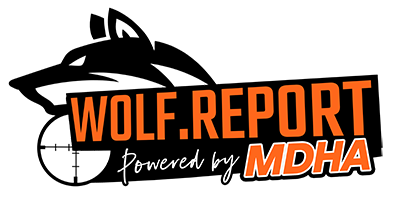

Wolves have long been a part of Minnesota's rich tapestry of wildlife, but their presence has also sparked debates and concerns, particularly among hunters and ranchers in the northern part of the state. As we navigate the complexities of wolf management, it is crucial that we approach the issue with empathy, education, and a willingness to find common ground.
For those who live and work in areas where wolves roam, the impact of these predators can be significant. Ranchers face the threat of livestock depredation, while hunters may see a decline in the populations of game species they rely on. These concerns are valid and should not be dismissed.
However, it is equally important to recognize that not everyone in Minnesota shares these experiences or perspectives. Those living far from wolf ranges may have a different view on how, or even if, wolves should be managed. It is our responsibility to bridge this gap in understanding through open and respectful dialogue.
When engaging with those who are unaware or indifferent to the challenges posed by wolves, it is essential to approach the conversation with patience and empathy. Rather than alienating or dismissing differing viewpoints, we must seek to educate and inform.
One valuable resource in this effort is wolf.report, a website dedicated to providing accurate and up-to-date information on wolf population, expansion, and management strategies. By directing others to this site and similar resources, we can help them gain a deeper understanding of the complexities surrounding wolf management.
It is crucial to emphasize that acknowledging the need for wolf management does not diminish the inherent value and beauty of these animals. Wolves play a vital role in our ecosystems, and their presence should be celebrated. However, we must also recognize that in some areas, their impact on human activities and livelihoods cannot be ignored.
As we work towards effective wolf management in Minnesota, it is essential that we find common ground among all stakeholders. This includes not only hunters and ranchers but also conservationists, wildlife managers, and the general public.
By engaging in respectful dialogue, sharing accurate information, and being open to diverse perspectives, we can develop management strategies that balance the needs of both humans and wildlife. This may involve a combination of targeted control measures, compensation programs for livestock losses, and ongoing research to better understand wolf populations and behavior.
The key is providing factual information to help people understand the complexities of the situation while promoting only lawful and ethical actions. Avoid anything that seems to advocate for illegal activity, even subtly.
Ultimately, the success of wolf management in Minnesota will depend on our ability to work together towards a shared goal – maintaining healthy wolf populations while minimizing conflicts with human activities. It is a challenging task but one that we must undertake with empathy, understanding, and a commitment to finding solutions that benefit all.
As hunters and ranchers who have witnessed firsthand the impact of wolves on our way of life, we have a unique opportunity to lead the way in shaping the future of wolf management in Minnesota. By engaging with our communities, sharing our experiences, and working collaboratively with other stakeholders, we can help ensure that both wolves and humans can thrive in our state.
So let us approach this issue with open minds, ready to listen, learn, and take action. Together, we can find a path forward that respects the needs of all and ensures a vibrant future for Minnesota's wild places and those who rely on them.
